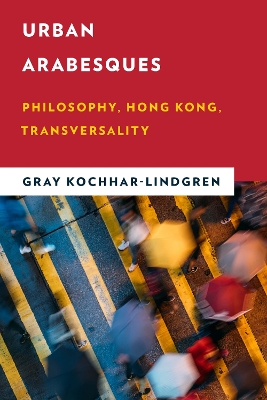New Critical Humanities
1 total work
Urban Arabesques examines philosophy as an event of the city and the city as an event of philosophy and how the intertwining of the two generates an urban imaginary. This critique-in-motion of creative figures and conceptual personae from (non) philosophy illuminates the emergence of sense in the city, shows how "transcendental empiricism" operates within it, and how the everyday life of the streets-the ordinariness of experience as well as the screen/projector of urban surfaces-uncovers new pathways for politics, experience, and relationalities.
Using Hong Kong as the primary site of thinking yet recognizing that thinking incessantly moves beyond any particular location, the book opens up cities within the city. Traversing Hong Kong reveals how the corners, the money, the trees and the water are involved in philosophy. Combining the linguistic approach found in Heidegger and Derrida, with the more materialist analysis of Serres and Deleuze, the objective of this book is to retheorize the urban and its imaginary-its virtuality, irreality, phantasmicity-with an emphasis on signs, images and rhythms, resonating through philosophy, and beyond.
Using Hong Kong as the primary site of thinking yet recognizing that thinking incessantly moves beyond any particular location, the book opens up cities within the city. Traversing Hong Kong reveals how the corners, the money, the trees and the water are involved in philosophy. Combining the linguistic approach found in Heidegger and Derrida, with the more materialist analysis of Serres and Deleuze, the objective of this book is to retheorize the urban and its imaginary-its virtuality, irreality, phantasmicity-with an emphasis on signs, images and rhythms, resonating through philosophy, and beyond.
